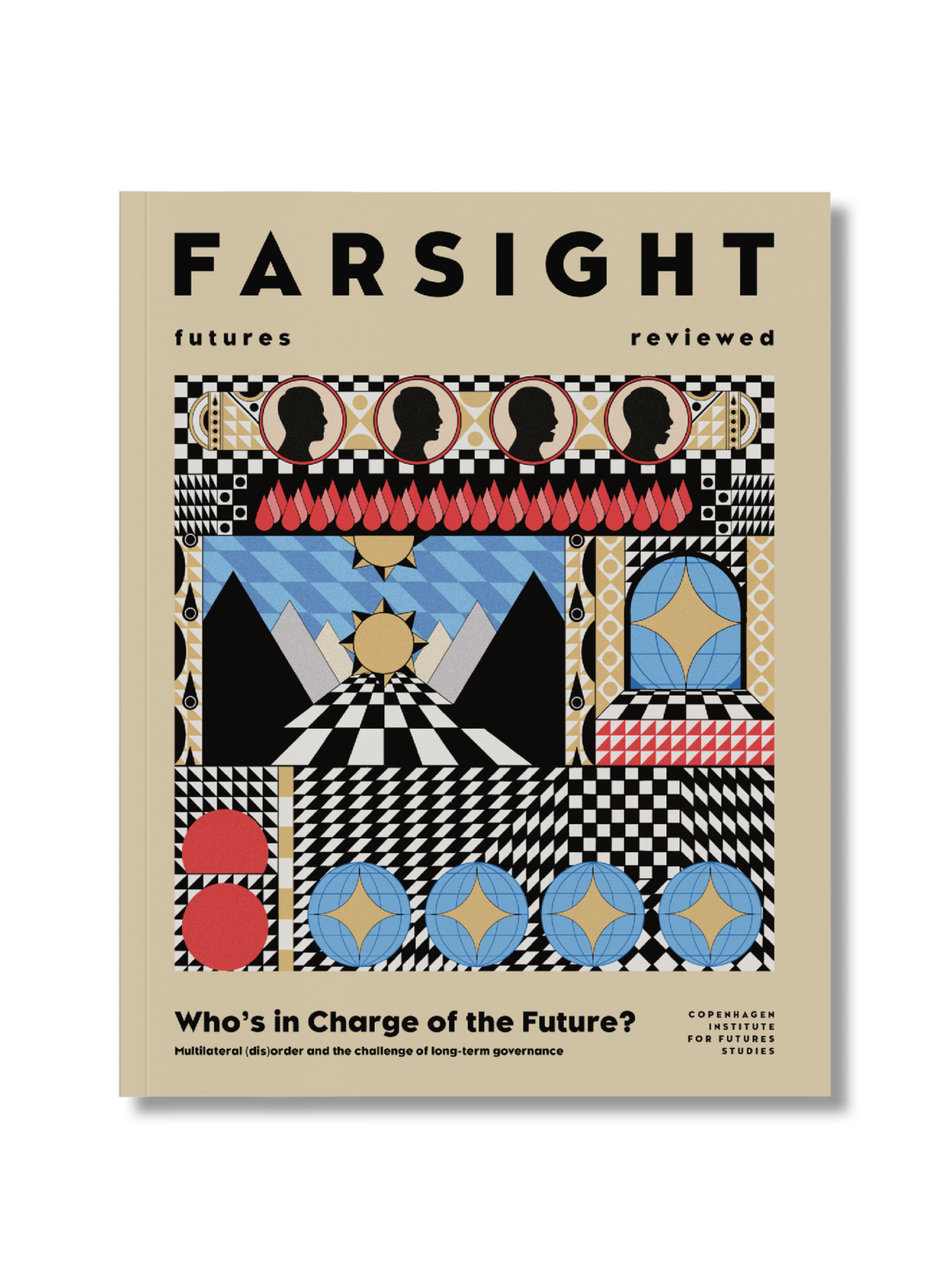
In turn, we use cookies to measure and obtain statistical data about the navigation of the users. You can configure and accept the use of the cookies, and modify your consent options, at any time.

Is a culture that buys into Psychic Vampire Repellent or the suggestion that one put jade eggs where the sun doesn’t shine ‘to harness the power of energy work’ in trouble?
Image: Pexels
Is wellness, well, not very well? Is a culture that buys into Psychic Vampire Repellent – “spray around the aura to protect from psychic attack” – or the suggestion that one put jade eggs where the sun doesn’t shine “to harness the power of energy work” in trouble?
These examples – just two recommendations from Gwyneth Paltrow’s frequently criticised Goop brand – may be superficially harmless, but the influence of the wellness industry is, many now argue, increasingly problematic. That’s not just a product of the wellness industry’s awesome size: 2022 saw the personal care market valued at $1089bn, wellness tourism at $651bn, mental wellness at $181bn and workplace wellness – because wellness follows us everywhere now – at $51bn.

Broaden your horizons with a Futures Membership. Stay updated on key trends and developments through receiving quarterly issues of FARSIGHT, live Futures Seminars with futurists, training, and discounts on our courses.
become a futures memberIt’s also a product of its reach, and of its (often empty) promises. “Practitioners had good intentions but now we’re seeing a misuse that departs from the original vision,” says Dr. Stephanie Baker, sociologist at London’s City University, UK, and author of Wellness Culture: How the Wellness Movement Has Been Used to Empower, Profit and Misinform. “The fact that the concept of wellness has been a very attractive way to sell products explains how it went from fringe counterculture to something mainstream and commodified,” she says.
“The fundamental problem with wellness now is that it tells people indirectly that no matter what they do they can be better, which in turn tells them they’re not good enough as they are,” argues Svend Brinkmann, Professor of Psychology at Aalborg University, Denmark, and author of Stand Firm: Resisting the Self-Improvement Craze. “The risks to mental health are obvious given the basic human need we all have to feel good enough as a person. And then there is its ethical risk: what happens to our commitments to others when we’re constantly seeking to transform ourselves? Self-help and wellness are the two sides of the same coin. They both sell a fantasy of happiness, a happiness of a kind that isn’t clear when you have it.”
What some are now calling the ‘Wellness Industrial Complex’ has, of course, been boosted by social media, not least because the barrier for entry is so low and the means for amplification so cheap. Anyone, regardless of authority, can build a platform. And, since so many of us are impressed by the merest hint of celebrity, attain an air of credibility too. Indeed, tracing its lineage back to the first international self-help best-sellers of the 1930s, Brinkmann points out that wellness, in its broadest sense, is now almost a century old. The internet has merely, if radically, entrenched a mindset that has been decades in the making. Apps the likes of Happify, Headspace, or Calm make wellness accessible on the go and provide that lucrative service with low overheads and pay-as-you-go convenience. Tracking technology, furthermore, provides a barrage of metrics by which our self-improvement can supposedly be measured.
That’s a concern, notes Stephen Palmer, Professor of Coaching Psychology at the University of Wales. Particularly since many wellness influencers have poor credentials yet the reach to shape fads that are potentially harmful, both physically and mentally, if not just to our bank balance.
“Wellness really has gone wrong, especially in terms of anyone now being able to make a claim to expertise that they don’t have, with no academic source or peer review at all,” adds Palmer. “The industry is too often peddling a lack of truth, which is particularly harmful to younger people who have grown up with Google and can always find that the algorithms will reinforce a wrong wellness belief.”
But while the pandemic increased the appeal of wellness influencers – in a sick world, who didn’t think more about their health? – various governments’ poor handling of the pandemic narrative, and science’s natural leaning towards nuance rather than absolutes, only served to weaken trust in actual scientific authority. That in turn is driving wellness enthusiasts towards more ‘alternative’ narratives.
“The wellness industry makes the kind of straight claims that, it seems, the public wants now: ‘Yes, it works!’, not ‘It might work!’,” says Palmer. And yet research shows that people who purchase self-improvement books, have likely bought another during the previous 18 months. When one method doesn’t deliver the promised results, we continue to search for one that will.
Indeed, according to a 2022 study by Baker, one way in which wellness online has further become corrupted is through its gradual slide into politics over the pandemic period. “There was a lot of collective discourse and a lot of it was conspiratorial in nature,” she says. “I was struck by not just how individual wellness influencers promoted dubious and sometimes harmful procedures but how networks of influencers used [their micro-celebrity] not just for commercial gain but for political gain. In many instances over the pandemic, certain networks of influencers would raise legitimate concerns but brand themselves under the banner of wellness. They’re strategically using whatever term is fashionable [like ‘wellness’] to more nefarious ends, to galvanise the public.”
Among these, she has found, are ‘altright’ and anti-vaccine discourses (in its widest sense, not just in relation to Covid), fears of curtailment of civil liberties, and Q-Anon-style conspiracy theories. Some wellness practitioners have felt compelled to make public statements rejecting what Baker has dubbed “alt-health influencers”. Key is a distrust of government but also of mainstream medicine, and the alleged injustices it causes. Baker identifies these influencers as often proposing their followers set out on the path from mind-body purification techniques, through spiritual awakening to the founding of a conscious community and, finally, towards moral supremacy. They promote what she calls a “persecuted hero narrative”.“This same formula applies as much to wellness gurus exposing the corruption of the food and pharmaceutical industry as it does to conspiracy theorists exposing the ‘deep state’s’ hidden agenda,” Baker writes in her study. “It is one of the reasons why alternative health and wellness communities are susceptible to conspiracy theories and political extremism. Their subject matter may vary, but the underlying logic of constructing an evil enemy and heroically seeking to restore Truth, Freedom, and Justice is remarkably similar.”

Explore the world of tomorrow with handpicked articles by signing up to our monthly newsletter.
sign up hereGiven its overlap with New Age spirituality, wellness, she says, is particularly vulnerable to weaponisation. It promotes the ideas of individualised solutions, of finding a more profound purpose in life and unlocking one’s potential, of thinking outside of the institutional framework, and an appealing emphasis on purity. Much as the joke goes that there’s no such thing as alternative medicine – because, if it worked, it would just be called ‘medicine’ – debasing science as the thought police of the ‘sheeple’ works. This is done while, simultaneously making an appeal to scientific validity. This approach works just as well for an unusual skincare treatment or diet plan as it does for arguing that, for example, the world is run by a shadowy elite of billionaires.
As Palmer points out, wellness concerns move through cycles of fashion. Despite this, wellness has long been able to pivot to provide timely ‘solutions’ to whatever the latest cultural worry may be: maximising productivity, better parenting, screen time, nutrition in the face of ‘ultra-processed foods’, exercise and recovery from it, de-cluttering the home or the mind, assertiveness, efficient sleep (get ‘sleep syncing’ and mouth taping!), and so on… “The fact that there are so many wellness concepts now somewhat suggests none of them work,” Brinkmann notes. “If any did there wouldn’t be the need for what has become this huge industry.”
But trust in wellness, however unfounded, is also increasingly underpinned by how it seems to fill what Palmer calls a “cognitive vacuum” in meeting a need for some kind of life management. Or perhaps it fills a spiritual hole in an in-creasingly secular culture. “People used to look to something beyond themselves, but secularisation has moved that absolute authority onto individuals,” suggests Brinkmann. “We’re told that if we believe in ourselves, we can achieve anything. Instead of the priesthood we have therapists and coaches. You could almost replace ‘God’ with ‘self’ now.”
“Wellness offers that sense of deeper meaning,” agrees Baker. “Most people following wellness trends and influencers have access to basic healthcare. With that covered the emphasis becomes less about survival and more about thriving.”
Does wellness have a future in its current form? For some, perhaps. One 2021 study by Southwest University, Chongquin, confirmed what we might suspect: that the ability to self-manage health skews heavily away from lower classes. The tired and poor have neither the money, space, nor time to embrace the latest wellness trends. Meanwhile, the economic squeeze on the middle-class – which wellness may at first seek to address – may become so tight that any inclination to indulge wellness trends may be squeezed out altogether. Might there be what, perversely, is a new wellness movement afoot, one telling us how to counter all the toxic wellness messaging with which we’re bombarded? Brinkmann’s future classic aside, there are best-sellers the likes of The Subtle Art of Not Giving a Fck and Fck Feelings – those expletives hinting at a very un-wellness, no-nonsense approach – while wellness-critical books published over the last 18 months have included the likes of The Gospel of Wellness, The Wellness Trap and Who is Wellness For?. Commentators the likes of Jordan Peterson have popularised ‘old-fashioned’ notions of self-reliance, rather than more self-love.
“There was a lot of criticism of the wellness industry before it, but I think the pandemic has accentuated those criticisms and highlighted the vulnerability of wellness,” says Baker. “That said, I don’t see it going away because I think there is a need for a broader conception of health than merely the absence of disease.”
Some might suggest wellness is just too big, too commercially useful, and too psychologically potent to fail. After all, while fitness is challenging, much of wellness is more pleasurable and indulgent. Will Storr, author of Selfie: How We Became So Self-Obsessed and What It’s Doing to Us, argues that wellness works precisely because it plays to our narcissism in especially narcissistic times. He argues that nature plays its part too, in that our brains give us an idea of ourselves through narrative; we’re the headline acts in our own show. But we’re also tribal, so we covet those things that make us stand out, that give us status, like showing we’re making progress in ourselves and in the world. It’s a matter of this performative ‘conspicuous wellness’.
Maybe we need to be shaken out of this navel-gazing. Brinkmann hopes that, to put it in quasi-religious terms, the end of wellness may be nigh. We’re in the eye of the storm of so many crises – the cost of living, the pandemic’s economic fallout, a European war, and the makings of a Middle Eastern one, political polarisation, an era of strongmen leaders, and climate change. These are events that people sense are very important, but which can’t be solved by improving ourselves, Brinkmann says.
“I think there’s maybe political potential in a kind of wellness that is much more about the collective,” he suggests. “We have to focus on more edifying images of human life. That should involve wellness because, of course, people want to live good lives, but we need to break it away from the business model.”
The trick will be not throwing the good in wellness out with the bad. “There is much that’s positive about wellbeing, including the notion that we should look after ourselves, particularly our mental health,” argues Jenni Cochrane, founder of the UK’s Getahead wellness festival. “The problem is that aspects of wellness are putting enormous pressure on people. Wellness has also become a vanity project – especially in the workplace – and there is so much uncertainty around wellness now because there’s so much bullshit. Working out what is real and for real people is an enormous challenge.”

Get FARSIGHT in print!